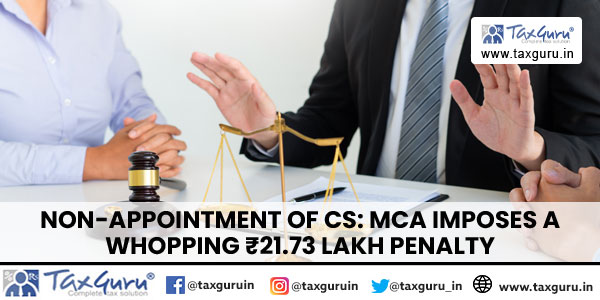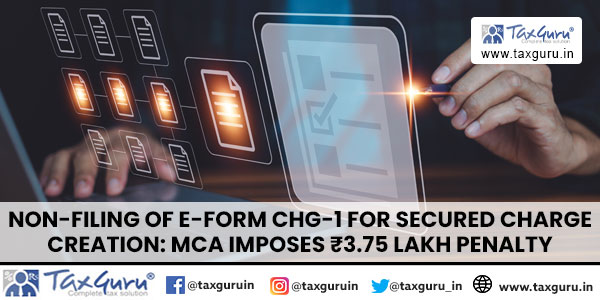As we all welcome GST there are many things left unsaid that needs to be clarified and creating lot of trouble and confusion in the minds of the traders. Government is coming up with various notifications for the smooth working of this new tax regime and one of such important notification issued by the government is to give marginal relief to dealers dealing in second hand goods Example Car Dealers, Jewellers, etc.
A second hand dealer of goods works in two ways:- (1) He buys the goods from one person and sell it to other keeping his margin of profit. (2) He helps in selling the goods on some commission.
The second way of doing business i.e. on commission basis has been specifically dealt in the law and is termed as service and the same is taxable presently @18%.
However there is lot of misunderstanding, confusion in the dealers where the dealer buys the goods from one person and sells the same to the other. In this Article I have tried to work down various provisions related to the sale of Second Hand Goods which may bring some clarity to this issue.
Now under the GST Regime there is no difference on the rate of tax to be charged on the new or second hand goods. So if a new car attracts say 28% of GST the rate of GST applicable to second hand car will also be 28%. Now dealers are of the view that such a high rate of tax will completely ruin the business of the second hand market but this misconception has been created in the minds of these dealers by some so called GST experts.
Under the GST regime the Second Hand Goods industry is facing two major problems:
(a) Do they have to pay tax under Reverse Charge under Section 9(4) of the Act on the goods which they purchase from common people who are unregistered as Sec 9(4) says that if a registered dealer make purchase from unregistered dealer above Rs.5000/- per day he will have to pay tax under Reverse Charge on the behalf of that unregistered dealer.
(b) Do they have to pay tax on the full rate as applicable to the new goods at the whole of the value charged from the buyer.
Government by way of various notifications has tried to answer these concerns of the Second hand Goods Industry.
Now for the 1st issue the government has come up with Notification No.10/2017- Central Tax (Rate) dated 28.06.2017 exempting intra-state supplies of second hand goods which is received by a registered person who pays central tax on the value of outward supply of such second hand goods on the basis as determined under rule 32 (5) of the Central Goods and Service Tax Rules, 2017. The relief is from payment of central tax applicable as per section 9 (4) of the Central Goods and Service Tax Act, 2017 i.e. goods received by registered person from unregistered person.
So government by way of this notification has given a big relief to these dealers so their valuable capital should not be blocked by unnecessary paying the tax at the time of purchase and then claiming its credit at the time of its sale.
Now the answer of the second problem lies in the valuation rules notified by the Government vide Notification No.10/2017 – Central Tax dated 28.06.2017. Rule 32 (5) of the Act specifically deals with the valuation of the Second hand goods. As the tax has to be paid on the value to be determined by the valuation rules. The valuation rules are of prime importance.
Main feature of valuation rule 32(5) is summarized hereunder –
1. Taxable supply is provided by a person dealing in buying and selling of second hand goods;
2. Such second hand goods should have been sold as such or after such minor processing which does not change the nature of the goods; and
3. Input tax credit on such goods should not has been availed at the purchase of such goods.
If all the above conditions are satisfied, the value of supply shall be the difference between the selling price and the purchase.
Further the proviso to the said rule 32 (5) clarifies that purchase value of goods repossessed from a defaulting borrower shall be deemed to be the purchase price of such goods by the defaulting borrower reduced by 5% points for every quarter or part thereof for the period between the date of purchase and the date of disposal by the person making such repossession.
Now let’s understand this with an example
‘A’ a unregistered common man goes to a Car dealer to sell his car for let’s say Rs.400000/-. Now the car dealer who is dealing in the business of second hand goods purchase that car and sells the same to another person say ‘B’ at Rs.500000/-. Now the rule says that the tax shall not be paid on the full amount of Rs.500000/- but on the difference between the selling and the purchase price i.e. (Rs.500000/- – Rs.400000/- = Rs.100000/-).
So by way of this valuation rule the government had tried to give relief to this trade that the tax will have to be paid not on the whole of the amount but only to the value addition done by the second hand dealer thus minimizing the cascading effect.
However there is condition to this valuation rule that the nature of good should not changes due to possessing. Similarly in the marginal scheme notification the relief is available only if the same goods are sold.
Lets take an example.
‘A’ goes to a Jeweller to sell his gold ring for say Rs.20000/-. Now if the Jeweller sells that gold ring to another person ‘B’ for say Rs.25000/- the valuation rules says that the value of such supply will be Rs.5000/- and GST has to be paid on Rs.5000/- which is 3% at present. However if the Jeweller melts that ring and makes another ring or any other jewellery and sells the same then valuation under this Rule will not be applicable and now if he sells the new product Rs.25000/- he will have to pay tax on whole of Rs.25000/- and not on his margin.
In the case where the nature of the goods are changed even relief available under the marginal scheme will not be available and the second hand dealer will also have to pay tax on the Purchase of second hand goods under Section 9(4) under the Reverse Charge and then he will be allowed claim the ITC of the same while discharging his output liability.
So to some extent the government has given some relaxation to the second hand goods industry.
(Republished With Amendments)




























Sir, which value will be taken for the purpose of counting aggregate turnover.
Difference between the purchase price and selling price, or the transaction value..???
format of supply invoice under rule 32 (5) of CGST RULE
Sir good evening I’m a glass scrap dealer
Rule 32/5 are applicable me second hand goods
Unreg purchase hsn 7010 please help me I’m totly confused
Sir, I need a help. Am dealing with used old diesel generator dealer. How much tax I need to pay . How to put bill for tax. To customer. Kindly help me . I have lot of confusion. Because old tax is 5% . Now it’s 18%.
need to know availability of input tax credit on second hand plant & machinery. can a manufacturer avail such credit on purchase of second hand plant & machinery….?
Sir I use to sell used product online after gst I have to sell used under reserve charge due to this the profit is too low .. recently I heard about the margin scheme 32(5) . Does this scheme can be applied for selling online ? If you can help that will be great.
I buy the product from unregistered dealer
As far as the sale and purchase of margin scheme is concerned notification is applicable 10/2017 is applicable. It is okay . A regd dealer of margin scheme may have to make other payments like rent other prof charges etc on which he will be getting ITC. Whether such ITC can be claimed, if so what is the procedure. Any body who has come across this situation please explain. Thanks
As you told that GST is applicable on margin in case of second hand goods dealer. Now suppose I am a second hand dealer of bikes. I purchase a bike for Rs. 20,000 and sell it at 30,000. So now assume GST rate is 10 percent. Then while making tax invoice I would show it as follows:
Sale of bike = 30,000
GST@10% = 1,000
Total = 40,000
so don’t you think that the person who is purchasing from me would automatically know about my profit amount. Because the rate is 10 percent so i should have charged 3000 as gst on 30,000. But i had charged 1,000. then it shows that ur profit is 10,000 and u r charging gst on it.
HOW TO HANDLE THIS SITUATION?
Whether the Second hand goods Margin scheme is applicable for the dealer who deals new products as well as Second Hand goods.
can a second hand car dealer avail composition scheme. and if yes what will be value will be considered for calculating the 75 Lacs turnover to avail composition scheme whether “profit margin” or “sale price” . Please clarify
Sir I’m registered dealer in gst. My gst registration in Punjab. I’m purchased used old empty cement bags from unregistered dealers. I’m selling it rajasthan. I’m purchased this bags Rs 2.90/- per bag and sell Rs 3.00 per bag. Total bags in truck 50000. Total profit Rs 5000/.- New plastic Pp bags tax ratio is 18 percent in gst code 3923 . So what are you suggesting me. My trading goods in 3923 code or 32(5)
Sir my two query on the issue.
1) In dealing in 2nd hand goods (nature of good not changed due to possessing) which amount is to be shown in gstr-1 for outward supplies.
2) Whether the dealer dealing in both the methods of trade (1) He buys the goods from one person and sell it to other keeping his margin of profit. (2) He helps in selling the goods on some commission can opt for composition scheme.
House wives exchanging old gold ornaments for new, will it be liable to RCM ? Can v treat the supply in course or furtherance of business activites ?
Sir, in Mumbai, it is normal practice that 2nd hand car dealers only take delivery of the vehicle for selling it or keeping it at his showroom for sale. The transfer docs are not signed for transfer in the name of such dealers. Such dealers do not become the owners of the vehicle. They act only as facilitators. In such a case, will the supply of vehicle by a unregister person to such a car dealer will be treated as one for RCM ? Can v treat this transaction as supply in the course of business of such owner of the vehicle ?